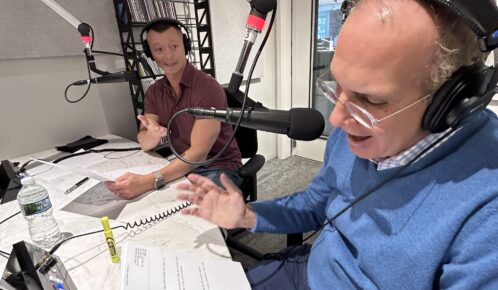Craig Pierce, who has been paralyzed on one side of his body for eight years following a stroke, has been awarded $41 million in a medical negligence lawsuit. This award, believed to be the largest in Illinois for a medical malpractice claim involving someone over 70, will fund his necessary round-the-clock care.
Table of Contents

The case stemmed from events at St. Francis Hospital in Peoria, where Pierce was admitted in February 2016 for pneumonia. During his treatment, Pierce developed an acute kidney injury and was prescribed an anticoagulant to prevent a stroke. However, there was inadequate monitoring of his blood levels, leading to a large cerebral artery stroke four weeks later. This stroke severely impacted his health, leaving him paralyzed and with cognitive impairments.
The lawsuit accused OSF HealthCare System and associated medical providers of negligence for not properly managing Pierce’s medication. Despite admissions of necessary management by all parties involved, there was no clear accountability. The jury’s verdict provides a measure of justice and ensures Pierce will receive the continuous care he needs.
If you or your loved one is a victim of medical malpractice, call Ankin Law at 312-600-0000.
Can You Sue for Misdiagnosis of Stroke?
You can sue for misdiagnosis of a stroke, but doing so involves legal and medical complexities. A misdiagnosis occurs when a healthcare provider incorrectly identifies or fails to identify a medical condition, leading to improper or delayed treatment. In the case of a stroke, which is a medical emergency requiring prompt treatment to minimize damage and improve outcomes, a misdiagnosis can have serious consequences.
Legal Grounds for a Misdiagnosis Lawsuit
To succeed in a lawsuit for misdiagnosis of a stroke, you must establish that medical negligence occurred. This involves demonstrating the following elements:
- Standard of Care: You need to show that the healthcare provider owed you an accepted standard of care. This standard is determined by what a reasonable and competent healthcare professional would have done under similar circumstances. For stroke diagnosis, this includes recognizing symptoms, performing appropriate tests, and making a timely diagnosis.
- Breach of Duty: You must prove that the healthcare provider breached this standard of care. For instance, if a doctor failed to order necessary diagnostic tests like a CT scan or MRI despite evident symptoms of a stroke, this could be considered a breach.
- Causation: It must be demonstrated that the breach of duty directly caused harm. In a stroke case, this means showing that the delay in diagnosis or incorrect treatment led to worsened outcomes, such as more extensive brain damage or long-term disability.
- Damages: Finally, you need to prove that you suffered damages as a result of the misdiagnosis. This can include physical injury, increased medical costs, loss of income, and pain and suffering.
How to File a Medical Negligence Lawsuit for Stroke Misdiagnosis
The process of filing a medical malpractice lawsuit for a stroke misdiagnosis can be overwhelming when victims are already dealing with the fallout of the injury. Fortunately, a medical malpractice lawyer can streamline this process and limit the legal burden suffered by you.
- Consult With an Attorney: The first step is to consult with an attorney who specializes in medical malpractice. He or she can evaluate the merits of your case, advise on the likelihood of success, and guide you through the legal process.
- Medical Expert Review: Your attorney will likely seek a medical expert to review your case. This expert will assess whether the healthcare provider’s actions fell below the standard of care and contributed to your injuries. His or her testimony is crucial in establishing negligence.
- Filing a Complaint: If the case is viable, your attorney will file a formal complaint in court. This document outlines your allegations against the healthcare provider, the specifics of the misdiagnosis, and the damages you are seeking.
- Discovery and Evidence: During the discovery phase, both sides exchange information relevant to the case. This includes medical records, expert opinions, and depositions. Gathering and analyzing this evidence is essential to build a strong case.
- Settlement or Trial: Many medical malpractice cases are resolved through settlement negotiations. However, if a settlement cannot be reached, the case will go to trial. During the trial, both parties present evidence, and a judge or jury decides the outcome.
In Illinois, the statute of limitations for filing a medical malpractice lawsuit is generally two years from the date you discovered or should have discovered the injury. There are exceptions for cases involving minors or situations where the injury is not immediately apparent, so it’s crucial to consult with an attorney to ensure timely filing.
Challenges in Misdiagnosis Cases
Misdiagnosis cases in medical malpractice are challenging due to several factors. Successfully pursuing such a case requires overcoming legal and medical hurdles. Some primary challenges include:
Proving Medical Negligence
One of the biggest challenges is proving that the healthcare provider was negligent. The standard of care in medical practice is what a reasonably competent medical professional would have done in similar circumstances. To establish negligence, you must demonstrate that the provider deviated from this standard. This often requires detailed analysis by medical experts who can testify whether the actions or omissions of the healthcare provider were below acceptable standards. Gathering and interpreting this expert testimony can be both time-consuming and costly.
Causation
Demonstrating causation is another challenge. You must prove that the misdiagnosis directly led to the harm or worsened your condition. In cases involving complex conditions like strokes, it can be difficult to establish a clear link between the misdiagnosis and the resulting injury, especially if the condition itself could have caused substantial damage regardless of the delay. Medical records, expert testimony, and a thorough review of the patient’s history are needed to show that the misdiagnosis was the direct cause of the negative outcome.
Medical Complexity
Medical malpractice cases often involve intricate details of medical procedures and treatments. Understanding the medical facts, including how a condition like a stroke should be diagnosed and treated, requires specialized knowledge. The defense may argue that the medical professionals followed standard practices and that any negative outcomes were unavoidable. To counter this, plaintiffs need to provide comprehensive evidence and expert opinions, which can be both complex and expensive.
Defensive Medicine
Healthcare providers and their insurers often mount a robust defense in malpractice cases. They may argue that the healthcare provider’s actions were within the standard of care or that the outcomes were not preventable. Providers might also use expert witnesses to counter claims of negligence, making it challenging for plaintiffs to establish a clear case of fault.
How Much Is a Stroke Misdiagnosis Case Worth?
The value of a stroke misdiagnosis case in Illinois is determined by the severity of the harm suffered, the degree of negligence involved, and the overall impact on the plaintiff’s life.
Severity of Harm
The primary determinant of a case’s value is the extent of the injury caused by the misdiagnosis. If the misdiagnosis led to severe and permanent disabilities, cognitive impairments, or other serious health complications, the case value will be higher. This includes costs for ongoing medical care, rehabilitation, and any impact on the plaintiff’s quality of life.
Economic Damages
Economic damages include medical expenses, lost wages, and costs associated with ongoing care. In cases of stroke misdiagnosis, these can be substantial. For example, if the stroke resulted in long-term disability, the cost of future medical care and assistance can be high.
Non-Economic Damages
Non-economic damages cover pain and suffering, emotional distress, and loss of enjoyment of life. These damages are subjective and vary depending on how the stroke has affected the plaintiff’s life. Courts consider the extent of physical pain, emotional impact, and changes in daily living.
Degree of Negligence
The level of negligence or fault of the healthcare provider plays a role in determining compensation. If the misdiagnosis resulted from gross negligence or egregious errors, the case might warrant higher damages.
Medical Malpractice Damage Caps in Illinois
Illinois law imposes caps on damages in medical malpractice cases.
- Caps on Non-Economic Damages: In Illinois, there is a cap on non-economic damages in medical malpractice cases. As of 2024, the cap is set at $1 million for cases involving individual healthcare providers and $3 million for cases involving hospitals or other healthcare institutions. This cap limits the amount plaintiffs can receive for pain and suffering and other non-economic losses, regardless of the severity of the impact.
- No Cap on Economic Damages: There is no cap on economic damages, which means compensation for medical expenses, lost wages, and other financial losses can be fully recovered without limitation.
- Punitive Damages: Illinois does not award punitive damages in medical malpractice cases. Punitive damages are intended to punish particularly egregious behavior and deter future misconduct, but they are rarely granted in medical negligence cases.
Suing for a misdiagnosis of a stroke is legally possible if you can establish that medical negligence occurred and that it caused harm. The process involves proving that the standard of care was breached, causation was direct, and damages were suffered. Consulting with an experienced medical malpractice attorney is essential to ensure that your rights are protected and that you receive appropriate compensation for the harm caused by the misdiagnosis.



